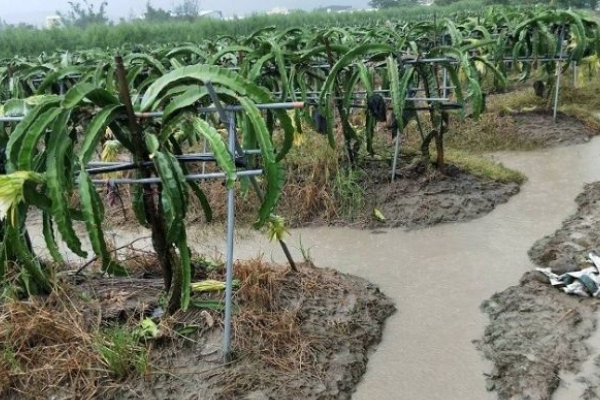Nigeria may suffer a food crisis in the coming months as flooding ravages more farmlands across the country.
Some states, particularly those along the courses of the Rivers Niger and Benue, have been devastated by flooding as a result of severe rainfall that shows no indications of abating.
[wonderplugin_video iframe=”https://youtu.be/z5Hd1lVAXTM” lightbox=0 lightboxsize=1 lightboxwidth=960 lightboxheight=540 autoopen=0 autoopendelay=0 autoclose=0 lightboxtitle=”” lightboxgroup=”” lightboxshownavigation=0 showimage=”” lightboxoptions=”” videowidth=600 videoheight=400 keepaspectratio=1 autoplay=0 loop=0 videocss=”position:relative;display:block;background-color:#000;overflow:hidden;max-width:100%;margin:0 auto;” playbutton=”https://www.tvcnews.tv/wp-content/plugins/wonderplugin-video-embed/engine/playvideo-64-64-0.png”]
The floods have destroyed farmlands, and experts fear that food shortages will occur in the coming months.
The Nigeria Hydrological Services Agency (NIHSA) has issued several warnings that flooding would continue into the third quarter of 2022.
The Federal Capital Territory (FCT) and nearly all of the 36 states of the federation, according to the most recent statistics made public by the government, have both experienced floods in some form, which has resulted in the loss of lives, property, and livelihoods. Over 100,000 families and communities have also been displaced
Numerous thousand hectares of land have been lost nationwide, with agriculture continuing to be the sector most severely affected.
Farmers have voiced their worries about the widespread destruction of food. Farms of rice, maize, sorghum, millet, beans, groundnuts, and beans, as well as countless animals, were destroyed by floods. They have urged for quick intervention to cushion the effects of the catastrophe, end hunger, and improve food security.
Federal government has also said it would continue to provide relief materials and medicals to internally displaced persons in states impacted by the floods.





